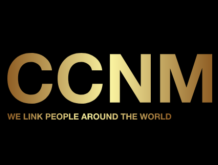SB 636 – Addiction treatment: advertising: payment.
SUMMARY
SB 636 addresses addiction treatment programs.
Specifically, SB 636 would prohibit payments of rebates, refunds, commissions, preferences, patronage dividends, discounts, or other consideration, whether in the form of money or otherwise (otherwise known as “kickbacks”), as compensation or inducement for referring patients, clients, or customers to any person or certified or licensed program.
In addition, SB 636 would permit assignment of an enrollee’s, subscriber’s, or insured’s right to reimbursement for covered addiction treatment services to the provider furnishing those services, as specified.
BACKGROUND
Current law does not prohibit the practice of “selling” patients to treatment centers that pass kickbacks back to insurers. The inability to prohibit patient brokering has led to unscrupulous financial relationships between treatment providers and referring agents. Notably, patient brokers are not credentialed professionals and may have little or no competency in identifying or assessing addiction. As a result, referrals are made based upon financial incentive rather than client benefit.
Reports of $5,000 to $10,000 payments for patient referrals are not uncommon.
Other states have already taken actions to prohibit patient brokering. In Florida, the Florida Patient Brokering Act, makes it’s a third-degree felony to offer any financial incentive for the referral of a patient.
Claim reimbursements for addiction treatment are sent to the member by their insurance company during their earliest stages of recovery. Many times patients leave treatment and discover large sums of money waiting upon returning homes. The checks meant to pay for the treatment can range from $10,000 to $30,000. Receiving a large cash distribution in early recovery can be an immediate trigger for relapse as patients use these checks to refuel the addiction they have just received treatment for. In some cases these patients end up back in treatment. In other cases, patients have used these large sums of money to buy enough drugs to overdose.
In some cases, “Pay to patient” policies have also led to insurance fraud where patients fake an addiction in order to profit from their addiction treatment coverage available through their insurance provider.
SOLUTION
SB 636:
• Prohibits compensation or inducement for referring patients, clients, or customers to any person or certified or licensed program
• Permits assignment for covered addiction treatment services to the provider furnishing those services, as specified
SUPPORT
None on file
OPPOSITION
None on file
CONTACT
Sue Kateley, Legislative Director Office of Senator Steve Bradford State Capitol, Room 2062
916-651-4035
sue.kateley@sen.ca.gov
Sponsor:
California Consortium of Addiction Programs and Professionals (CCAPP)

